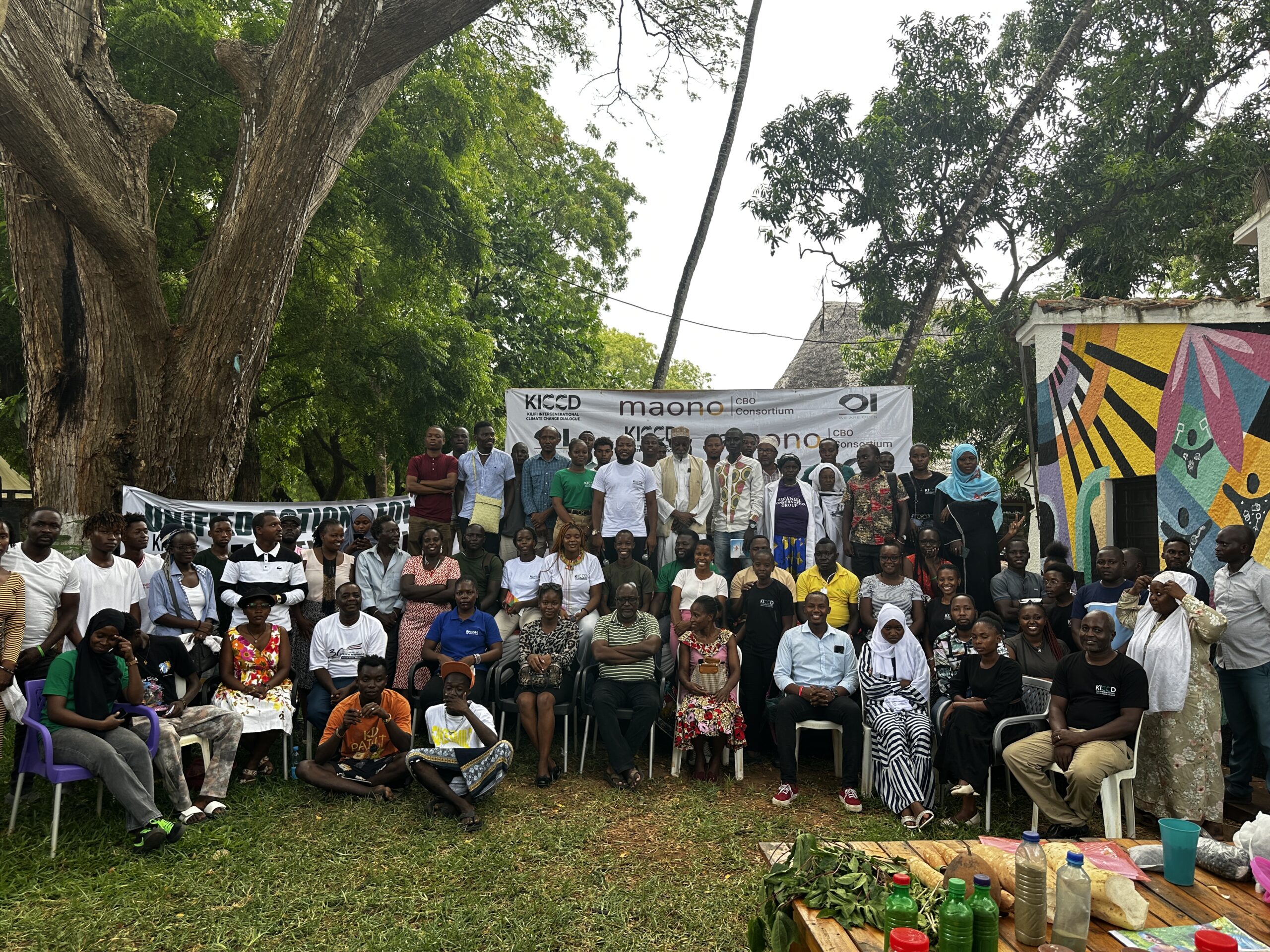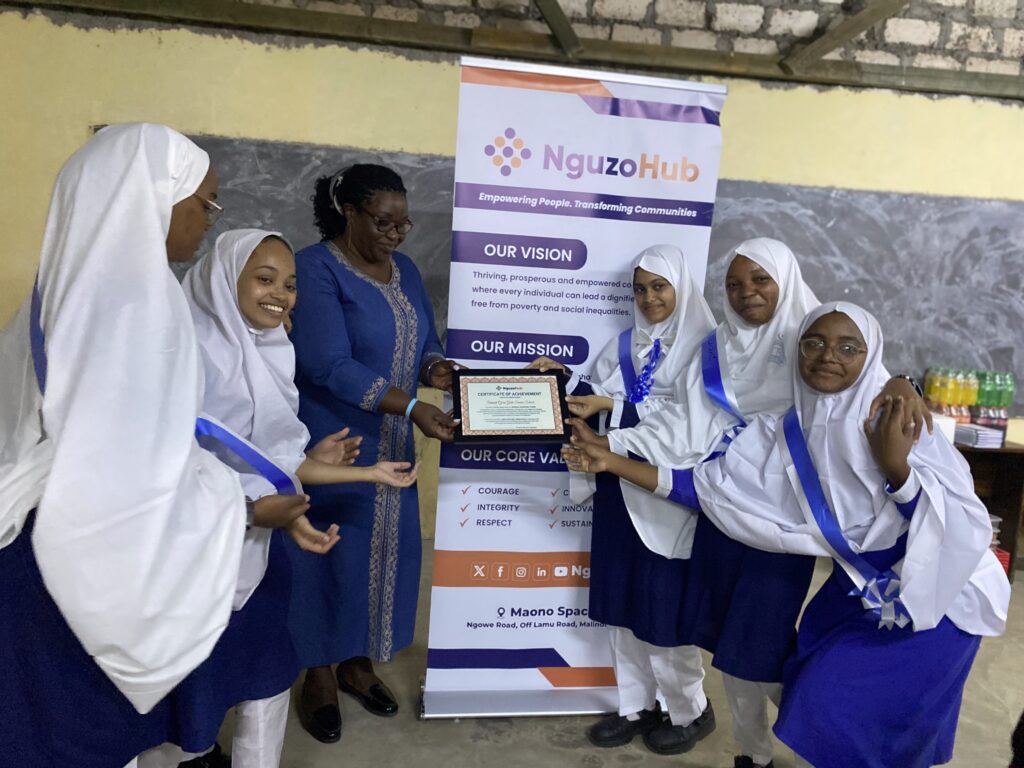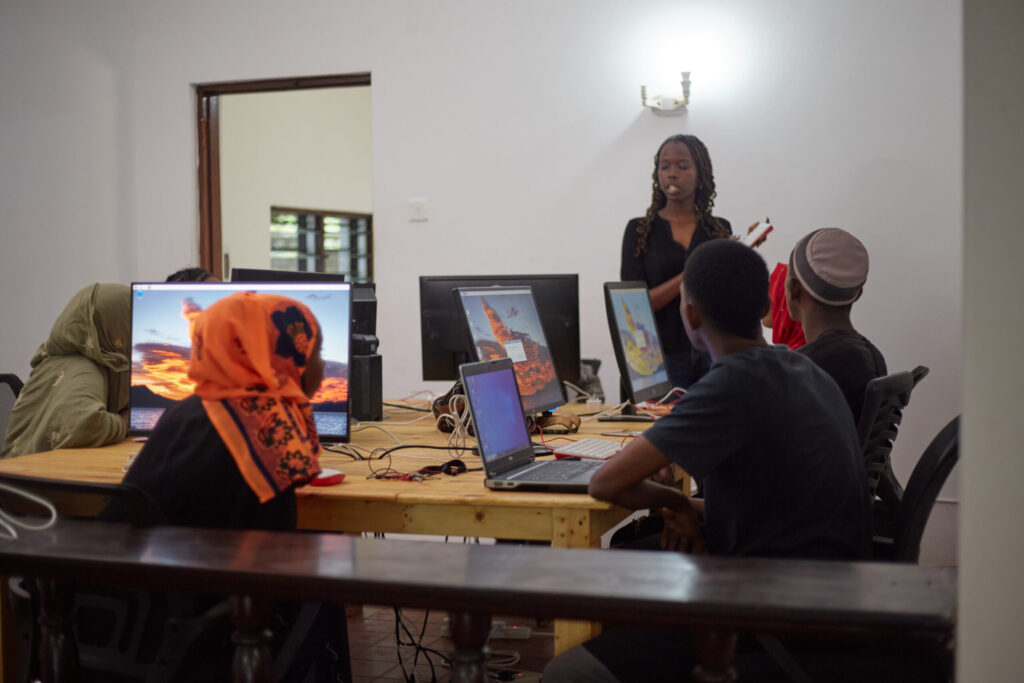At Maono Space, we believe that real change begins at the grassroots, with passionate people and organizations working together to shape their communities. The Kilifi Intergenerational Climate Change Dialogue (KICCD) is a great example of how local efforts can tackle shared challenges and create real impact.
KICCD was inspired by Elphic Tossi, the founder of OneMillionTrees4Kilifi. He believed that climate action shouldn’t only happen at global events like COP29 or the Africa Climate Summit, but right here at home, where communities face the challenges directly. Elphic wanted Kilifi residents to come together, share their stories, and create practical solutions for the environment that fit their way of life.
“Our lives are deeply tied to the environment, yet many climate action talks feel distant. Coming together locally lets us address the issues that truly affect us and find solutions that work for us,” Elphic said.
This vision came to life with the Kilifi Intergenerational Climate Change Dialogue KICCD01 in 2023 and was further amplified in KICCD02 this year, bringing together community people across Kilifi County to discuss and shape local solutions to Kilifi’s unique climate challenges,
A Quick Recap on KICCD 01.
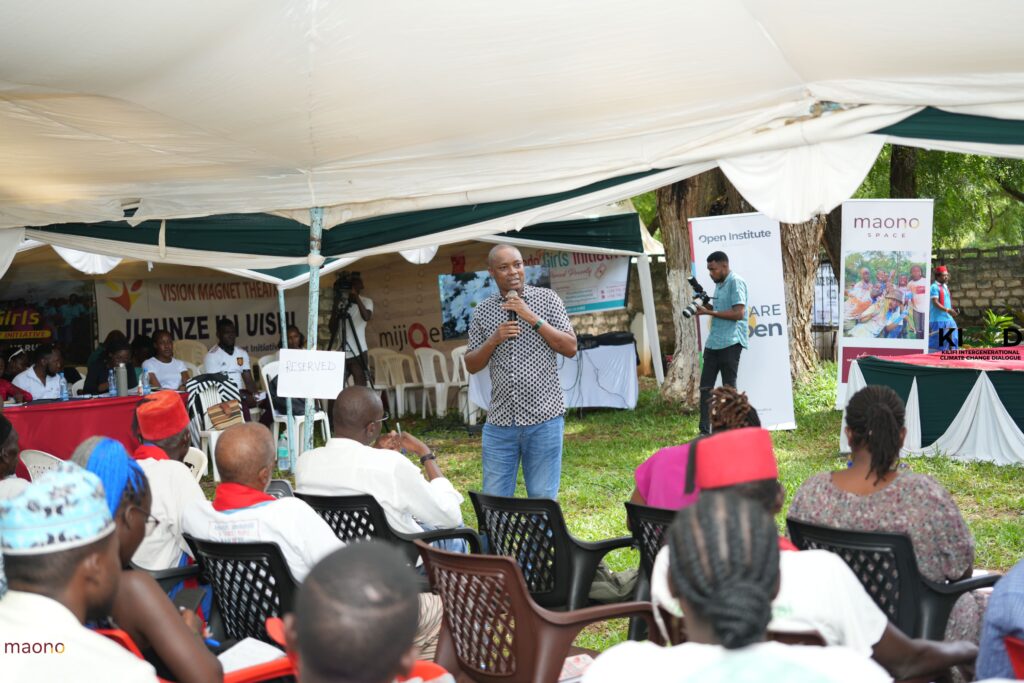
In 2023, the first Kilifi Intergenerational Climate Change Dialogue set the stage for grassroots collaboration here at Maono. Organized by Maono changemakers, KICCD01 brought together over 350 participants from across Kilifi County, including farmers, students, fishermen, youth leaders, elders, policymakers, and environmental enthusiasts.
Discussions tackled critical climate issues like waste management, carbon markets, and sustainable natural resource practices. Participants discussed practical solutions tailored to Kilifi’s unique challenges, like recycling waste, adopting renewable energy alternatives, and leveraging carbon credits to benefit conservation efforts in simple language that community members could understand, including in Giriama.
One of the most inspiring outcomes was the story of women from Garashi, who, after attending KICCD01, revisited the carbon credit contracts they had signed without understanding, and renegotiated with clarity and confidence. This showed how access to information and collaboration can drive meaningful change.
What Happened on KICCD 02.
Building on the success of its first edition, KICCD02 brought together over 300 participants at Maono Space on November 15, 2024. The event featured in-depth discussions on pressing challenges and practical solutions tailored to Kilifi’s community context.
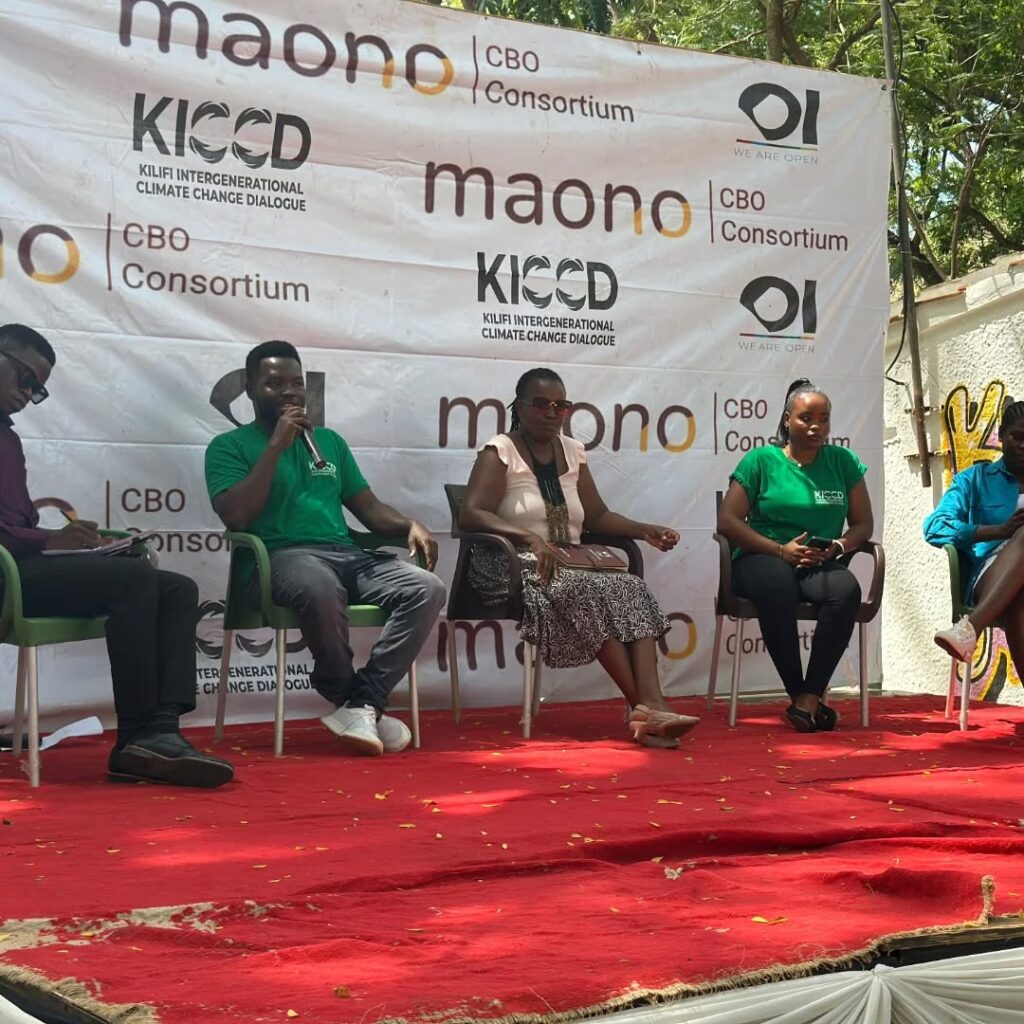
1. Waste Management
-Waste management was a big focus. Kilifi towns struggle with poor waste disposal, illegal dumpsites, and burning trash, which cause health problems and block drainage systems, leading to flooding during the rainy season. One example was the Mayungu dumpsite in Malindi, a long-standing issue that residents have been complaining about with little change.
The discussion focused on what communities can do to address these problems:
- Elphic Tossi (One Million Trees for Kilifi) talked about planting trees to help reduce waste and combat environmental damage.
- Julian Wahome (Kwetu Yetu) shared ideas on recycling waste and turning it into resources for income.
- Roseline Ngalla (Shella Environmental Youth) highlighted how young people can lead waste reduction campaigns in their communities.
- Effue Opiyo (PWAM) emphasized the importance of everyone participating in managing waste better.
2. Climate Governance
Many climate challenges in Kilifi are overlooked during public participation forums, where discussions often focus on roads and infrastructure. This session, led by Robert Banda, encouraged communities to speak up about climate issues, such as waste and environmental concerns, during public forums. Raising these concerns could lead to funding for climate solutions and hold leaders accountable for taking action.
3. Climate Mobility
Communities along River Galana shared their struggles with frequent flooding. When the river overflows, families are forced to leave their homes and return when water levels go down. Many don’t know where to get help during such times, leaving them vulnerable.
Angel Kyalo the Executive Director of The Green Halo Initiative, an organization under the Maono consortium led the discussion on how climate change is forcing people to move and what can be done to help. Participants present learned about where they can find help in such crises. One example is the International Organization for Migration (IOM), which helps climate-related displaced individuals and families. The session also talked about planning towns better to accommodate people affected by such crises while respecting their dignity and rights.
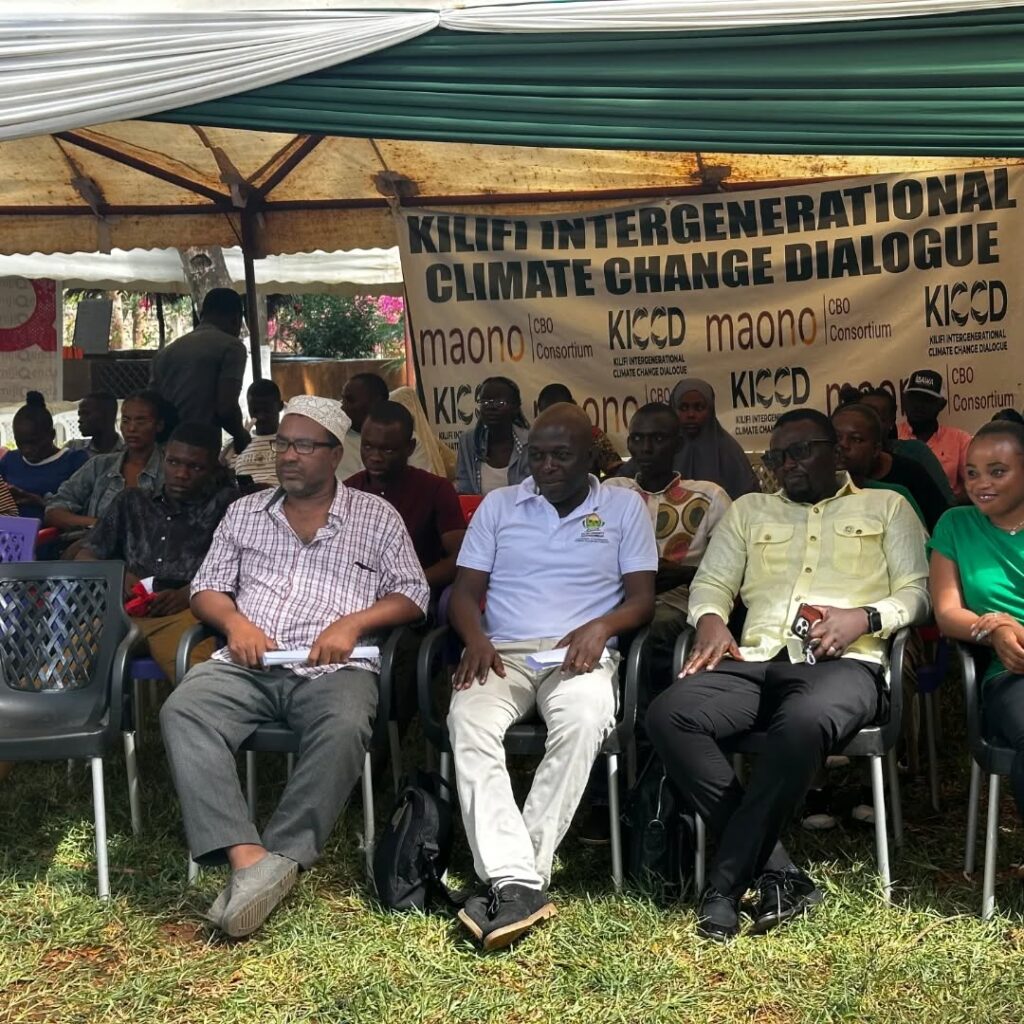
Organizing such an impactful event came with its fair share of challenges. Reaching over 300 participants from across Kilifi County who had to travel long distances and cover their transport costs was a hustle. Managing logistics while juggling limited budgets due to failed fundraising attempts was not easy for the changemakers.
“We had not reached our intended target for our budget on the eve of the event. But our creative thinking on fundraising internally as changemakers from Maono, and the few contributions from organizations, businesses and individual community members eventually paid off.” Rose Ngala, the Chairperson of the changemakers said. She also added, “This is a big lesson learned for us, we now know where to improve on our fundraising. Come KICCD03, we will not have the same challenges. We are growing”.
Even with these challenges, KICCD02 was a success. Members present actively engaged in discussions, shared a meal together and committed to managing waste appropriately. At the end of the dialogue, community members and changemakers drafted a community memo, presenting their recommendations on waste management to the Municipality of Malindi and other local authorities. This declaration symbolized the collective voice of the community, emphasizing commitment to sustainable solutions and showcasing the potential of grassroots collaboration in driving change.
As preparations for KICCD03 commence, this journey is showing us what’s possible when communities take the lead. At Maono Space, we are proud to provide a space where changemakers can work, network, and collaborate. By amplifying local voices and driving community-led solutions, we continue to support grassroots leaders and organizations to create lasting impact in their communities.
To every changemaker who contributed to this journey: Thank you. As we look ahead to KICCD03, we believe KICCD03 will be bigger, more inclusive, and more impactful.

